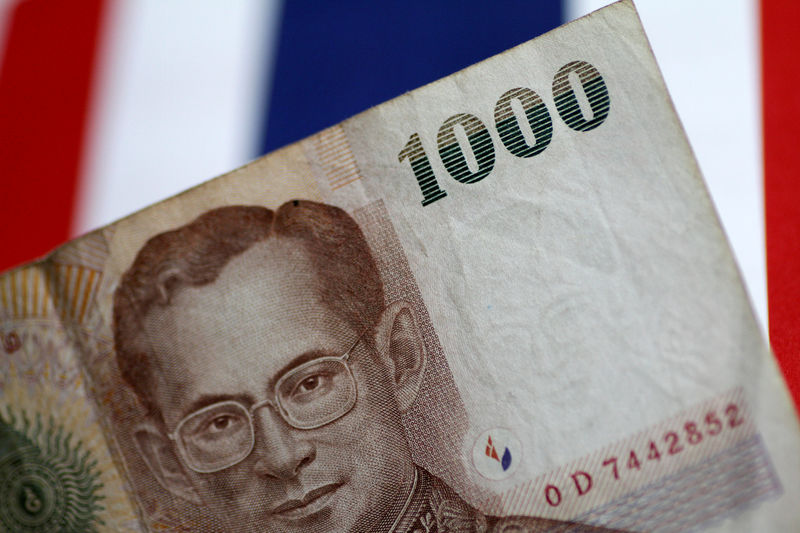By Tom Westbrook
SINGAPORE (Reuters) - Some fund managers and investment houses who began the year bullish on Asia are already hedging some of their bets - or at least staying on the sidelines - as the spread of a new virus from China looks certain to weigh on the region's economy.
More than 200 people have died in China and almost 10,000 are infected. Many details about how fast the virus spreads and how deadly it is remain unclear and its overall cost difficult to gauge.
Airlines have pulled flights, factories have extended holidays, economists have slashed their China growth forecasts and Asian stocks have plunged.
All economists expect a rebound eventually, but differ on how hard and fast the bounce back comes.
Hong Kong's Hang Seng index (HSI) has fallen 9% in two weeks. Currencies widely expected to rise this year, such as the Thai baht, have tumbled and that is giving money managers cause to change their views, even if just for the time being.
The virus has jolted markets just as world economic conditions were improving and geopolitical risks were expected to abate with the signing of the Sino-U.S. trade deal, the top investment officers at Europe's biggest fund manager, Amundi, said in a note this week.
The 1.4 trillion euro ($1.6 trillion) fund downgraded its view of emerging markets FX from positive to neutral - citing risks to the baht and Chilean peso in particular - in what it called a "tactical" move to reduce volatility in portfolios.
Amundi is not expecting a long global shock from the virus, and in fact expects buying opportunities to arise as markets recover, but it is not alone in souring on emerging markets' currencies.
Price moves have already punished Thailand, which is heavily exposed to Chinese tourism. The baht, which has resisted months of policy easing, has shed 4% for the month.
Deutsche Bank (DE:DBKGn), which had in December expected the baht to grind higher over 2020, turned short on the currency on Tuesday, targeting a drop to 32 baht per dollar.
The bank's analysts also see the Singapore dollar weakening to between 1.38 and 1.40 Singapore dollars per greenback. The baht last traded at 31.12 per dollar and the Singapore dollar at 1.3624 per U.S. dollar .
"Both countries have room for a policy response which could weigh on FX, and neither central bank is likely to stand in the way of weakness," said Deutsche strategist Mallika Sachdeva.
Elsewhere economists have been cutting growth forecasts for China. J.P. Morgan cut its year-on-year growth figure for the first quarter to 5.6% from 6%. Citi expects it could fall as far as 4.8% in the quarter and BNP Paribas (PA:BNPP) estimates sub 5%.
UBS Asset Management, which controls $903 billion in assets, is sticking by its bullish view on stocks and debt in China and emerging markets.
"Our base case is that the virus has only a short-term impact on demand that does not extend into the second half of the year," said Evan Brown, head of multi-asset strategies, and Dan Heron, senior investment strategist, in a UBS client newsletter.
"Emerging market economies were hardest hit by the downturn in manufacturing and trade in 2018 and 2019. Simply put, we believe that they are the most leveraged to the rebound."
